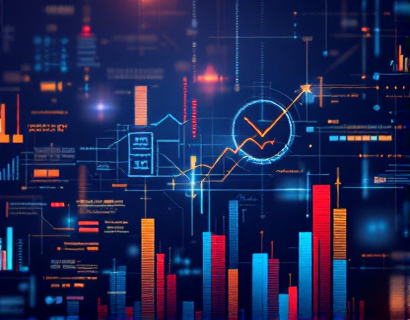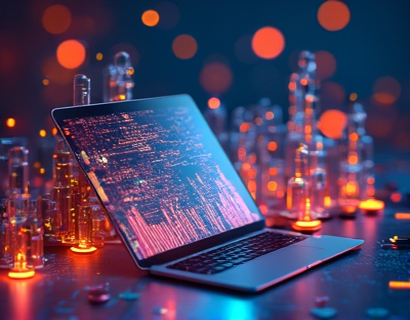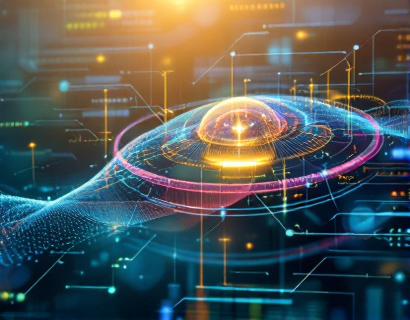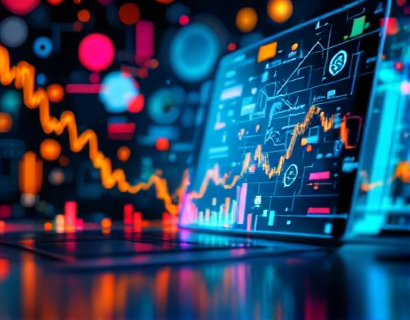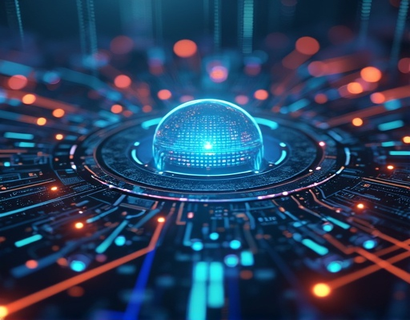AI and Crypto: A Synergistic Force Reshaping Digital Experiences
The intersection of artificial intelligence and cryptocurrency is giving rise to a new era of digital transformation, where the boundaries of technology are being redefined. This fusion is not just about combining two advanced fields but creating a synergy that enhances user experiences, secures transactions, and opens up new possibilities in the digital realm. As tech enthusiasts and innovators, understanding this integration is crucial for anyone looking to stay ahead in the rapidly evolving tech landscape.
Understanding the Basics: AI and Cryptocurrency
Artificial intelligence, or AI, refers to the simulation of human intelligence processes by machines, particularly computer systems. These processes include learning, reasoning, and self-correction. AI technologies encompass a broad range of applications, from simple data analysis to complex decision-making systems.
Cryptocurrency, on the other hand, is a digital or virtual currency that uses cryptography for security. It operates on a decentralized network, typically a blockchain, which ensures transparency and immutability of transactions. Bitcoin, launched in 2009, is the most well-known cryptocurrency, but thousands of others have emerged, each with unique features and purposes.
The combination of AI and cryptocurrency is particularly potent because AI can enhance the functionality, security, and user experience of blockchain-based systems. Conversely, the decentralized and secure nature of cryptocurrency can provide a robust framework for AI applications, especially those requiring high levels of data integrity and privacy.
Enhancing Security with AI
One of the primary benefits of integrating AI with cryptocurrency is the significant improvement in security measures. Traditional cybersecurity methods often struggle with the evolving tactics of cybercriminals. AI, however, can analyze vast amounts of data in real-time, identifying patterns and anomalies that indicate potential threats.
For instance, AI-driven systems can monitor blockchain networks for suspicious activities, such as unusual transaction patterns or attempts at double-spending. Machine learning algorithms can be trained to recognize these patterns and automatically trigger alerts or enforce preventive measures. This proactive approach to security not only protects users' assets but also builds trust in cryptocurrency as a reliable and secure form of digital currency.
Moreover, AI can enhance the security of private keys and wallet management. Biometric authentication, powered by AI, can provide a more secure and convenient way to access cryptocurrency wallets. Face recognition, fingerprint scanning, and even behavioral biometrics can be integrated to ensure that only authorized users can access sensitive information.
Optimizing Blockchain Performance with AI
Blockchain technology, while revolutionary, faces challenges related to scalability and transaction processing speed. AI can play a crucial role in optimizing these aspects. By analyzing network data, AI algorithms can identify bottlenecks and suggest improvements to the blockchain architecture.
For example, AI can optimize consensus mechanisms, which are critical for validating transactions and maintaining the integrity of the blockchain. Traditional consensus methods like Proof of Work (PoW) are energy-intensive and slow. AI can assist in developing more efficient consensus algorithms, such as Proof of Stake (PoS) or Delegated Proof of Stake (DPoS), by predicting network behavior and adjusting parameters in real-time.
Additionally, AI can enhance the development of sidechains and interoperability protocols, allowing different blockchain networks to communicate and transfer assets seamlessly. This interoperability is essential for the widespread adoption of blockchain technology across various industries.
Personalized User Experiences through AI
The integration of AI with cryptocurrency also revolutionizes user experiences by providing personalized services. In the realm of digital finance, AI can analyze user behavior, preferences, and market trends to offer tailored investment advice and portfolio management solutions.
For instance, AI-powered trading bots can execute trades based on predefined strategies or real-time market data, helping users maximize returns and minimize risks. These bots can adapt to changing market conditions and learn from past trades to improve their performance over time.
Furthermore, AI can enhance customer support in cryptocurrency platforms by providing instant, accurate, and personalized assistance. Chatbots and virtual assistants powered by natural language processing (NLP) can handle a wide range of queries, from transaction details to complex financial concepts, ensuring users have a smooth and efficient experience.
Decentralized Finance (DeFi) and AI
Decentralized Finance (DeFi) is an emerging sector that leverages blockchain technology to create financial systems without traditional intermediaries. AI plays a pivotal role in enhancing the functionality and accessibility of DeFi platforms.
AI algorithms can analyze vast amounts of financial data to identify trends, predict market movements, and optimize trading strategies. This capability is particularly valuable in DeFi, where users can lend, borrow, trade, and yield farm cryptocurrencies with greater autonomy and control.
Moreover, AI can improve risk management in DeFi by assessing creditworthiness, detecting fraudulent activities, and managing liquidity. Smart contracts, the backbone of DeFi, can be enhanced with AI to execute more complex and conditional operations, ensuring transactions are executed only when predefined criteria are met.
Supply Chain and Logistics: A New Frontier
The impact of AI and cryptocurrency extends beyond digital finance to supply chain and logistics. The combination of these technologies can create transparent, efficient, and secure supply chains.
Cryptocurrency can facilitate seamless and secure transactions between suppliers, manufacturers, and retailers, reducing the need for intermediaries and lowering costs. AI, on the other hand, can optimize supply chain operations by predicting demand, managing inventory, and tracking shipments in real-time.
For example, AI-powered systems can analyze historical data and current market trends to forecast product demand accurately. This information can be used to adjust production schedules and inventory levels, minimizing waste and ensuring products are available when needed. Blockchain, with its immutable ledger, ensures that all transactions and movements are recorded transparently, enhancing trust and accountability throughout the supply chain.
Challenges and Considerations
While the integration of AI and cryptocurrency offers numerous benefits, it also presents challenges that need to be addressed. One of the primary concerns is regulatory compliance. The decentralized nature of cryptocurrency and the complex algorithms of AI systems can make it difficult to navigate varying legal frameworks across different jurisdictions.
Another challenge is the technical complexity involved in developing and maintaining these integrated systems. Both AI and blockchain technologies are rapidly evolving, requiring continuous updates and improvements to stay relevant and secure. Ensuring compatibility and interoperability between different AI and blockchain platforms is also a significant hurdle.
Privacy is another critical issue. While AI can enhance security, it also raises concerns about data privacy and the potential misuse of personal information. It is essential to implement robust privacy protocols and adhere to data protection regulations to maintain user trust.
Future Prospects: A Connected Digital World
The future of AI and cryptocurrency integration holds immense potential. As technology advances, we can expect more sophisticated and seamless integrations that further enhance digital experiences. The convergence of these technologies will likely lead to the development of new applications and services that were previously unimaginable.
For instance, the rise of Web 3.0, a decentralized internet powered by blockchain, AI, and other advanced technologies, promises a more secure, private, and user-centric web. In this ecosystem, users will have greater control over their data and digital identities, with AI-driven services providing personalized and efficient interactions.
Moreover, the integration of AI and cryptocurrency can drive innovation in various industries, from healthcare to finance to entertainment. Smart contracts can automate complex agreements, AI can analyze medical data to assist in diagnosis and treatment, and decentralized platforms can offer new revenue models for content creators.
In conclusion, the synergy between AI and cryptocurrency is transforming digital experiences, making them more secure, personalized, and efficient. As tech enthusiasts and innovators, embracing this integration is essential for staying at the forefront of technological advancements and shaping the future of connected technologies.



